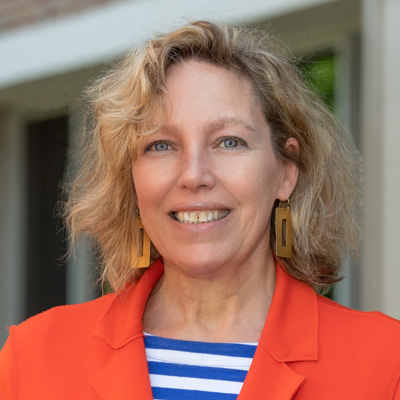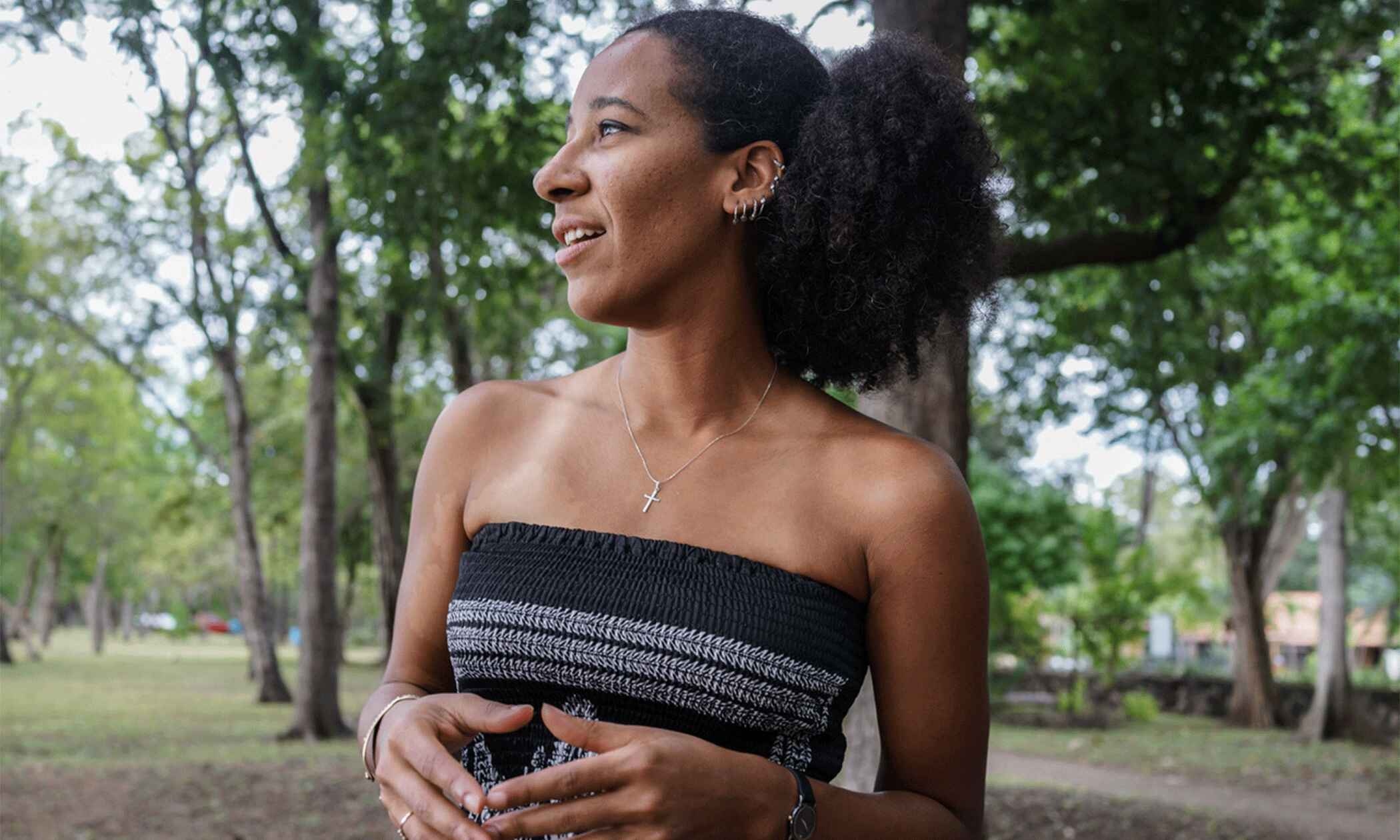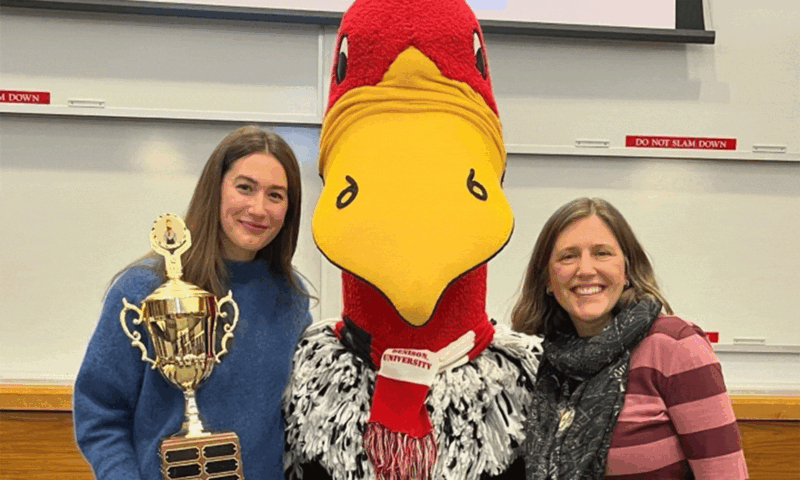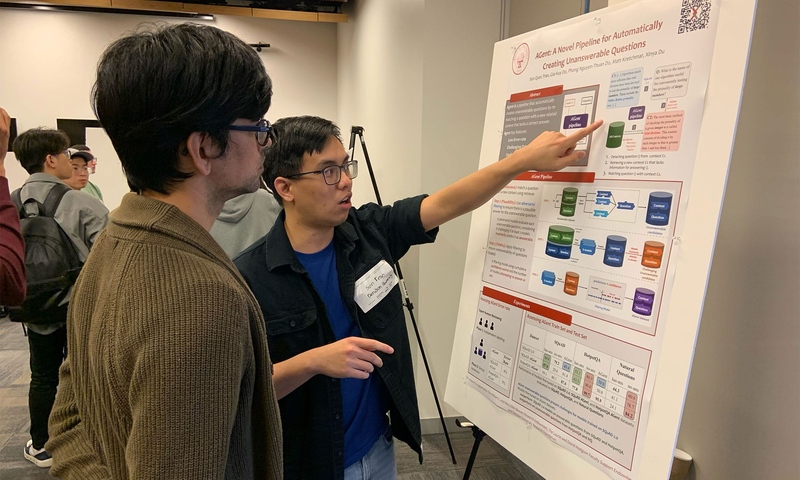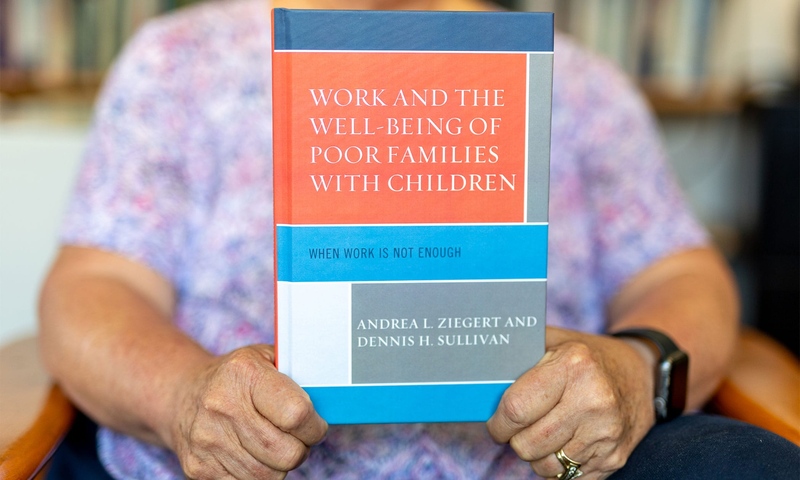Professor Diana Mafe was recognized as “a master of the craft” with Denison’s 2023 Brickman Teaching Excellence Award. Her work tracks the literary and cinematic roles for women of color, and she just received funding from the National Endowment for the Humanities to work on her forthcoming book, Haunted Houses of the Black Atlantic.
In this Q&A, Mafe shares more about her research on roles for women of color, engaging students in the classroom, and the power of storytelling through video games.
Can you reflect on being a woman of color in academia?
Being a woman of color is part of my identity, but it doesn’t always have to be definitive. People can make assumptions about all our identities — gender, race, class, nationality. It’s been no different for me.
For example, I have a Dutch mother and a Nigerian father. I lived in Canada for many years but I don’t look like a quintessential Canadian. I like to share my diverse background as a way for me to challenge preconceptions.
In many ways, being a woman of color has enriched my teaching. There is value in diversity and in students seeing a range of people take on the role of professor. It is also at the heart of my work as a scholar.
Can you tell us more about that work?
I was an art and English double major in college. Now I’m a professor grounded in cultural texts and studies. I’m especially interested in exploring roles for women of color in texts and in the world. I believe that art matters; we need it. It offers a means of being political and starting important conversations but also a means of putting beauty and aesthetics into the world.
“That’s part of being a teacher. I’m not here to solve all the questions. I’m here to ask questions and get them to ask questions.”
You were just recognized for the excellence of your teaching. How do you engage your students to draw out their best work?
As a teacher, my own passion and enthusiasm — and sometimes frustration — with the material can be contagious. That energy sustains the class and can bring out some of their best discussions, writing, and analysis. When it comes to literary theory and textual readings, it’s rarely a straightforward answer. I can have 18 students write about one text and get 18 different readings.
We don’t only teach texts we like, which sometimes surprises students. But troubling or confusing texts are a chance for students to push back against the text and my own views of the text. They learn they don’t all have to agree. We debate and argue about meaning.
One text I always enjoy teaching is Jamaica Kincaid’s A Small Place. It’s a short non-fiction book about her home country of Antigua and an indictment of the tourist industry there.
Without fail, we have great conversations. Students start to look at the world in a different way. They think about where their coffee was grown; where their sneakers were made; what it means to be a tourist. And they start asking, what do we do now? Should I start a nonprofit? Be more responsible with my shopping?
I leave it with them. I tell them it’s something for their generation to think about.
That’s part of being a teacher. I’m not here to solve all the questions. I’m here to ask questions and get them to ask questions.
You say you are a lifelong fan of PC and console games, from The Legend of Zelda and Monkey Island to Dragon Age and the Uncharted and Fallout franchises. We want to hear more.
Video games are about storytelling and new worlds — you can choose a character and be part of the story. As a writer and visual artist, it was inevitable that I would enjoy them.
Early video games like The Legend of Zelda were very much about problem-solving and creative thinking — all the things we love in the liberal arts!
About the Brickman award:
The Brickman family established the Charles A. Brickman Teaching Excellence Award to recognize a faculty member who embraces the teaching and mentoring of students not just as a profession but as a calling.
